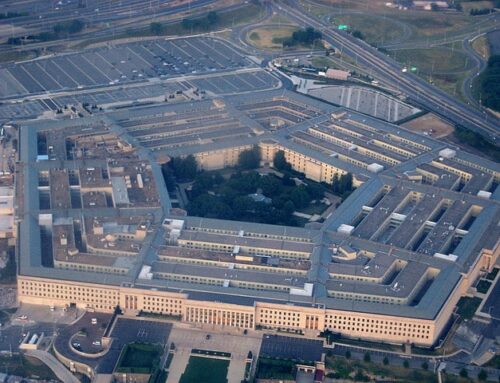The Republican and Democratic leaders of the Senate Armed Services Committee announced their intention to establish a Pacific Deterrence Initiative to bolster U.S. military capabilities in the Indo-Pacific region. In an opinion piece outlining the plan, Senators Inhofe (R-OK) and Reed (D-RI) specifically refer to the European Deterrence Initiative (“EDI” although also at one point called the European Reassurance Initiative), established by the Pentagon during the Obama Administration.
Established to show resolve against Russian aggression in Crimea, EDI started “small” (for the Pentagon) at less than $1 billion and at TCS we predicted at the time this was just the camel’s nose under the budgetary tent. Our spidey senses tingled right about that. Spending on EDI climbed to a peak of $6.5 billion and now runs at roughly $4.5 billion per year, or about 25 percent below the budgetary highwater mark, but still four times the original budget. We also pointed out from the get-go that EDI seemed strangely duplicative of the mission of NATO. A major mission of NATO is to deter Russian aggression and it has always seemed odd to us that a new, multi-billion dollar, program is needed when we could use the collective whole of all the nations of NATO as a force-multiplier. This is what the United States has done, successfully, for 70 years.
But more than any other objection TCS has to EDI, it has consistently been funded via “off-budget” Overseas Contingency Operations (OCO) funds. This is both a transparent attempt to find ways to spend the billions sloshing through the OCO accounts, and a bad way to reassure the Europeans that we’re serious about this program. If the Pentagon really wants to bolster defenses in Europe, the program should go through the normal requirements and funding process. That would show our allies a real commitment to the ideals of EDI.
Enter, Senators Inhofe and Reed and the Pacific Deterrence Initiative. At TCS we are glad to see this in the opinion piece about their plans, penned by the Senators: “First, the Pacific Deterrence Initiative will enhance budgetary transparency and congressional oversight.” The Senators assert that this will be the case because “the detailed budget justification materials for the European Deterrence Initiative allow Congress to track these efforts over time, assess their progress, and make adjustments when necessary.” This is a fair point but, again, if EDI were really a long-term priority at the Pentagon, departmental leaders would find room for it in the huge budgetary topline and not resort to funding gimmicks.
The two Senate Armed Services Committee leaders also state, “…the Pacific Deterrence Initiative will reassure allies and partners of America’s commitment to the Indo-Pacific region. We hear over and over again from foreign counterparts that they are hedging their bets for the future because they don’t know if they can count on the United States.”
The opinion piece isn’t detailed enough to tell us how this program will be funded, through the Pentagon’s so-called “base” budget or the amorphous OCO accounts. But the outyear details of the President’s Budget Request for FY21 shows OCO funding soon dropping to $10 billion per year. That doesn’t leave much room for these new mission priorities. As we stated above regarding EDI, what will really reassure our allies is if this initiative is a high enough priority to be funded through the Pentagon’s massive base budget without adding more funding. That would show commitment to the mission of countering Chinese influence in the Indo-Pacific region.
Resource informed strategy must be a cornerstone of Pentagon planning. Deficit financing of the core priorities of any federal agency is unsustainable. We await the budget details of the Senators’ plans when the draft of the Pentagon policy bill is revealed in June.











Get Social